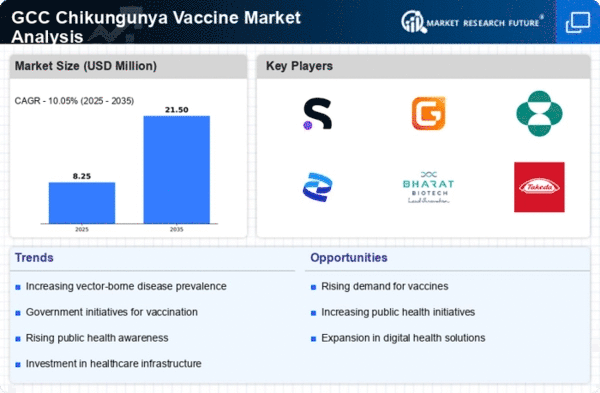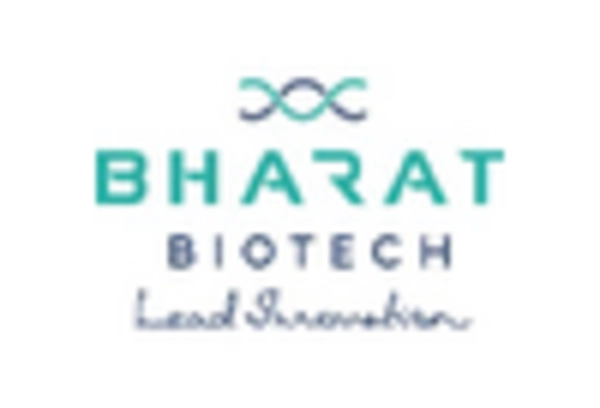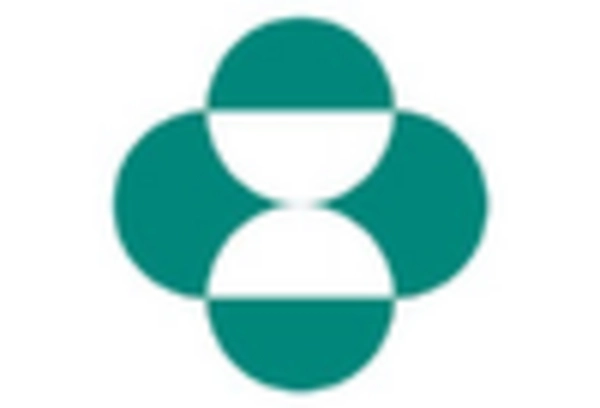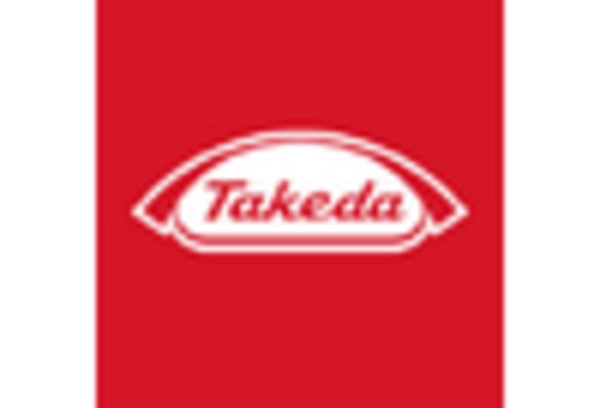Government Funding and Support
Government funding and support play a crucial role in the chikungunya vaccine market. In the GCC, various health authorities are allocating substantial budgets to combat vector-borne diseases, including chikungunya. This financial backing is directed towards research, development, and distribution of vaccines. For instance, recent allocations have reached millions of dollars, aimed at enhancing vaccine accessibility and public awareness campaigns. Such initiatives not only facilitate the development of effective vaccines but also ensure that they are available to the population at large. The commitment of governments to eradicate chikungunya through vaccination programs is likely to stimulate market growth, as it fosters collaboration between public health entities and private vaccine manufacturers.
Advancements in Vaccine Technology
Advancements in vaccine technology are significantly influencing the chikungunya vaccine market. Innovative approaches, such as mRNA technology and viral vector platforms, are being explored to enhance vaccine efficacy and safety. These technological developments may lead to the creation of more effective vaccines that require fewer doses or provide longer-lasting immunity. In the GCC, research institutions and pharmaceutical companies are collaborating to leverage these advancements, potentially accelerating the timeline for vaccine availability. The introduction of novel vaccine candidates could stimulate market growth, as healthcare providers and patients seek out the most effective solutions for chikungunya prevention. As technology continues to evolve, the chikungunya vaccine market is likely to benefit from improved product offerings.
Rising Travel and Trade Activities
Rising travel and trade activities in the GCC are contributing to the growth of the chikungunya vaccine market. Increased movement of people across borders can facilitate the spread of chikungunya, making vaccination a critical preventive measure for travelers and expatriates. As tourism and business travel continue to expand, health authorities are likely to emphasize the importance of vaccination for those traveling to endemic areas. This trend may lead to the implementation of vaccination requirements for travelers, further driving demand in the chikungunya vaccine market. Additionally, partnerships between travel agencies and healthcare providers to promote vaccination could enhance awareness and accessibility, ultimately supporting public health initiatives in the region.
Rising Incidence of Chikungunya Cases
The chikungunya vaccine market is experiencing growth due to the rising incidence of chikungunya cases in the GCC region. Reports indicate that the number of reported cases has increased significantly, with some countries witnessing outbreaks. This surge in cases has heightened public awareness and concern regarding the disease, prompting governments and health organizations to prioritize vaccination efforts. The increasing burden of chikungunya on healthcare systems is likely to drive demand for vaccines, as prevention becomes a critical focus. As a result, investments in vaccine research and development are expected to rise, further propelling the chikungunya vaccine market. The GCC region's unique climate and urbanization trends may contribute to the spread of the virus, making vaccination an essential public health strategy.
Increased Public Awareness and Education
Public awareness and education regarding chikungunya are pivotal drivers of the chikungunya vaccine market. As communities become more informed about the symptoms and transmission of the virus, the demand for vaccination is expected to rise. Health campaigns in the GCC have been instrumental in disseminating information about the disease, emphasizing the importance of vaccination as a preventive measure. Surveys indicate that a significant portion of the population is now aware of the vaccine's availability and its benefits. This heightened awareness is likely to translate into increased vaccination rates, thereby expanding the chikungunya vaccine market. Educational initiatives that target high-risk populations may further enhance uptake, contributing to overall public health goals.
















